55 start with S start with S
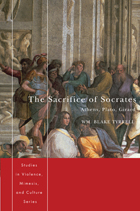
When Athenians suffered the shame of having lost a war from their own greed and foolishness, around 404 BCE the public’s blame was directed at Socrates, a man whose unique appearance and behavior, as well as his disapproval of the democracy, made him a ready target. Socrates was subsequently put on trial and sentenced to death. However, as René Girard has pointed out, no individual can be held responsible for a communal crisis. Plato’s Apology depicts Socrates as both the bane and the cure of Greek society, while his Crito shows a sacrificial Socrates, what some might consider a pharmakos figure, the human drug through whom Plato can dispense his philosophical remedies. With tremendous insight and satisfying complexity, this book analyzes classical texts through the lens of Girard’s mimetic mechanism.

Saints of Ninth- and Tenth-Century Greece collects funeral orations, encomia, and narrative hagiography. Together, these works illuminate one of the most obscure periods of Greek history—when holy men played central roles as the Byzantine administration reimposed control on southern and central Greece in the wake of Avar, Slavic, and Arab attacks and the collapse of the late Roman Empire. The bishops of the region provided much-needed leadership and institutional stability, while ascetics established hermitages and faced invaders. The Lives gathered here include accounts of Peter of Argos, which offers insight into episcopal authority in medieval Greece, and Theodore of Kythera, an important source for the history of piracy in the Aegean Sea.
This volume, which illustrates the literary variety of saints’ Lives, presents Byzantine Greek texts written by locals in the provinces and translated here into English for the first time.

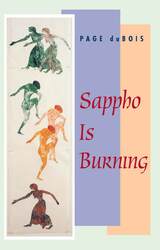
In Sappho is Burning, duBois reads Sappho as a disruptive figure at the very origin of our story of Western civilization. Sappho is beyond contemporary categories, inhabiting a space outside of reductively linear accounts of our common history. She is a woman, but also an aristocrat, a Greek, but one turned toward Asia, a poet who writes as a philosopher before philosophy, a writer who speaks of sexuality that can be identified neither with Michel Foucault's account of Greek sexuality, nor with many versions of contemporary lesbian sexuality. She is named as the tenth muse, yet the nine books of her poetry survive only in fragments. She disorients, troubles, undoes many certitudes in the history of poetry, the history of philosophy, the history of sexuality. DuBois argues that we need to read Sappho again.
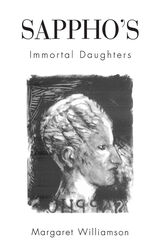
She lived on the island of Lesbos around 600 B.C.E. She composed lyric poetry, only fragments of which survive. And she was--and is--the most highly regarded woman poet of Greek and Roman antiquity.
Little more than this can be said with certainty about Sappho, and yet a great deal more is said. Her life, so little known, is the stuff of legends; her poetry, the source of endless speculation. This book is a search for Sappho through the poetry she wrote, the culture she inhabited, and the myths that have risen around her. It is an expert and thoroughly engaging introduction to one of the most enduring and enigmatic figures of antiquity.Margaret Williamson conducts us through ancient representations of Sappho, from vase paintings to appearances in Ovid, and traces the route by which her work has reached us, shaped along the way by excavators, editors, and interpreters. She goes back to the poet's world and time to explore perennial questions about Sappho: How could a woman have access to the public medium of song? What was the place of female sexuality in the public and religious symbolism of Greek culture? What is the sexual meaning of her poems? Williamson follows with a close look at the poems themselves, Sappho's "immortal daughters." Her book offers the clearest picture yet of a woman whose place in the history of Western culture has been at once assured and mysterious.
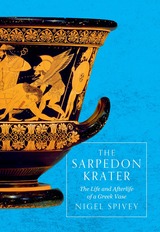
Spivey takes the reader on a dramatic journey, beginning with the krater’s looting from an Etruscan tomb in 1971 and its acquisition by the Metropolitan Museum of Art, New York, followed by a high-profile lawsuit over its status and its eventual return to Italy. He explains where, how, and why the vase was produced, retrieving what we know about the life and legend of Sarpedon. Spivey also pursues the figural motif of the slain Sarpedon portrayed on the vase and traces how this motif became a standard way of representing the dead and dying in Western art, especially during the Renaissance.
Fascinating and informative, The Sarpedon Krater is a multifaceted introduction to the enduring influence of Greek art on the world.
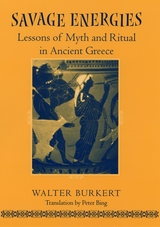
For example, in a much-cited essay on the Athenian religious festival of the Arrephoria, Burkert uncovers deep connections between this strange nocturnal ritual, in which two virgin girls carried sacred offerings into a cave and later returned with something given to them there, and tribal puberty initiations by linking the festival with the myth of the daughters of Kekrops. Other chapters explore the origins of tragedy in blood sacrifice; the role of myth in the ritual of the new fire on Lemnos; the ties between violence, the Athenian courts, and the annual purification of the divine image; and how failed political propaganda entered the realm of myth at the time of the Persian Wars.
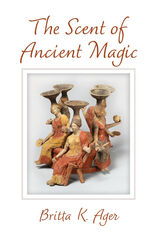
The Scent of Ancient Magic explores the complex interconnection of scent and magic in the Greco-Roman world between 800 BCE and CE 600, drawing on ancient literature and the modern study of the senses to examine the sensory depth and richness of ancient magic. Author Britta K. Ager looks at how ancient magicians used scents as part of their spells, to put themselves in the right mindset for an encounter with a god or to attack their enemies through scent. Ager also examines the magicians who appear in ancient fiction, like Medea and Circe, and the more metaphorical ways in which their spells are confused with perfumes and herbs. This book brings together recent scholarship on ancient magic from classical studies and on scent from the interdisciplinary field of sensory studies in order to examine how practicing ancient magicians used scents for ritual purposes, how scent and magic were conceptually related in ancient literature and culture, and how the assumption that strong scents convey powerful effects of various sorts was also found in related areas like ancient medical practices and normative religious ritual.

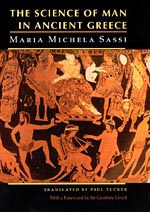
Maria Michela Sassi reconstructs Greek attempts to answer such questions from Homer's day to late antiquity, ranging across physiognomy, ethnography, geography, medicine, and astrology. Sassi demonstrates that in the Greek science of man, empirical observations were inextricably bound up with a prejudiced view of the free Greek male as superior to all others. Thus, because women were assumed to have pale skin from staying indoors too much, Greek biology and medicine sought to explain this feature as an indication of the "cold" nature of women, as opposed to the "hot" constitution of men.
For this English translation, Sassi has rewritten the introduction and updated the text and references throughout, and Sir Geoffrey Lloyd has provided a new foreword.

A miscellany of minor works.
Xenophon (ca. 430 to ca. 354 BC) was a wealthy Athenian and friend of Socrates. He left Athens in 401 and joined an expedition including ten thousand Greeks led by the Persian governor Cyrus against the Persian king. After the defeat of Cyrus, it fell to Xenophon to lead the Greeks from the gates of Babylon back to the coast through inhospitable lands. Later he wrote the famous vivid account of this “March Up-Country” (Anabasis); but meanwhile he entered service under the Spartans against the Persian king, married happily, and joined the staff of the Spartan king, Agesilaus. But Athens was at war with Sparta in 394 and so exiled Xenophon. The Spartans gave him an estate near Elis where he lived for years, writing and hunting and educating his sons. Reconciled to Sparta, Athens restored Xenophon to honor, but he preferred to retire to Corinth.
Xenophon’s Anabasis is a true story of remarkable adventures. Hellenica, a history of Greek affairs from 411 to 362, begins as a continuation of Thucydides’ account. There are four works on Socrates (collected in LCL 168). In Memorabilia Xenophon adds to Plato’s picture of Socrates from a different viewpoint. The Apology is an interesting complement to Plato’s account of Socrates’ defense at his trial. Xenophon’s Symposium portrays a dinner party at which Socrates speaks of love; and Oeconomicus has him giving advice on household management and married life. Cyropaedia, a historical romance on the education of Cyrus (the Elder), reflects Xenophon’s ideas about rulers and government.
We also have his Hiero, a dialogue on government; Agesilaus, in praise of that king; Constitution of Lacedaemon (on the Spartan system); Ways and Means (on the finances of Athens); Manual for a Cavalry Commander; a good manual of Horsemanship; and a lively Hunting with Hounds—mostly hare hunting. The Constitution of the Athenians, though clearly not by Xenophon, is an interesting document on politics at Athens. These eight books are collected in the present volume.

Late antique muckraking.
Procopius, born at Caesarea in Palestine late in the fifth century, became a lawyer. In AD 527 he was made legal adviser and secretary of Belisarius, commander against the Persians, and went with Belisarius again in 533 against the Vandals and in 535 against the Ostrogoths. Sometime after 540 he returned to Constantinople. He may have been that Procopius who was prefect of Constantinople in 562, but the date of his death (after 558) is unknown.
Procopius’ History of the Wars in 8 books recounts the Persian Wars of emperors Justinus and Justinian down to 550 (2 books); the Vandalic War and after-events in Africa 532–546 (2 books); the Gothic War against the Ostrogoths in Sicily and Italy 536–552 (3 books); and a sketch of events to 554 (1 book). The whole consists largely of military history, with much information about peoples and places as well, and about special events. He was a diligent, careful, judicious narrator of facts and developments and shows good powers of description. He is just to the empire’s enemies and boldly criticizes emperor Justinian. Other works by Procopius are the Anecdota or Secret History—vehement attacks on Justinian, Theodora, and others; and the Buildings of Justinian (down to AD 558) including roads and bridges as well as churches, forts, hospitals, and so on in various parts of the empire.
The Loeb Classical Library edition of Procopius is in seven volumes.

Personal records from the sands of Egypt.
This is the first of two volumes giving a selection of Greek papyri relating to private and public business. They cover a period from before 300 BC to the eighth century AD. Most were found in rubbish heaps or remains of ancient houses or in tombs in Egypt. From such papyri we get much information about administration and social and economic conditions in Egypt, and about native Egyptian, Greek, Roman, and Byzantine law, as well as glimpses of ordinary life.
This volume contains: Agreements, 71 examples; these concern marriage, divorce, adoption, apprenticeship, sales, leases, employment of laborers. Receipts, 10. Wills, 6. Deed of disownment. Personal letters from men and women, young and old, 82. Memoranda, 2. Invitations, 5. Orders for payment, 2. Agenda, 2. Accounts and inventories, 12. Questions of oracles, 3. Christian prayers, 2. A Gnostic charm. Horoscopes, 2.
The three-volume Loeb Classical Library edition of Select Papyri also includes a volume of poetry.

Official records from the sands of Egypt.
This volume presents papyri relating to public business of various kinds in Egypt from the middle of the 3rd century BC to AD 710, thus including affairs in that country first when it was ruled by the Greek Ptolemaic kings, secondly when it was a Roman province. The earliest examples date from the reign of King Ptolemy II Philadelphus and the latest from the government by the Arabs after their conquest of Egypt in AD 639–641.
The papyri chosen were all sent by persons in office (from king, Roman emperor, or governor downwards) or addressed to them or sent for their information: Codes and Regulations, 6 examples. Edicts and Orders, 26. Public Announcements, 6. Reports of Meetings, 3. Official Acts and Inquiries, 5. Judicial Business, 18. Petitions and Applications, 44. Declarations to Officials, 30. Appointments and Nominations, 7. Tenders and Contracts, 19. Receipts, 26. Orders for Payment, 6. Accounts and Registers or Lists, 12. Letters, 16. Notes on the systems of dating and of money in Egypt as well as a glossary of technical terms are provided.
The three-volume Loeb Classical Library edition of Select Papyri also includes a volume of poetry and one of private documents.

Scraps of verse from the sands of Egypt.
The papyri found in Egypt have yielded fragments large and small of ancient literary authors. We include in this volume from the 5th–4th centuries BC fragments of two tragedies (one a satyr play) by Aeschylus; of five by Sophocles; of ten by Euripides; of one by Ion; and of some plays not assignable. From Old Comedy, 5th century, we have fragments of one play each of Epicharmus, Cratinus, Pherecrates, Eupolis, and Plato; some fragments of Aristophanes; and unassignable fragments. From Middle Comedy and New Comedy, 4th and 3rd centuries, are twenty-six items including at least three by Menander and one each by Philemon, Timocles, and Straton. From mimes there are a fragment of Sophron and six unassignable, including 112 lines of clownish doings by the Indian Ocean. The lyric poetry, 7th century BC–4th AD, twenty-one mostly anonymous items, includes some of Sappho, Corinna, Pindar, Philicus, fragments of dithyrambic poetry, hymns, songs and so on. There are seventeen examples of elegiac and iambic, 7th century BC–3rd AD, including some Mimnermus, Amyntas, Leonidas, Antipater of Sidon, and Posidippus. The thirty items of hexameter poetry, 5th century BC–6th AD are mostly unassignable but include Panyasis, Erinna (a lovely fragment of her “Distaff”), Euphorion, Pancrates, and Dionysius (the “Bassarica”).
The three-volume Loeb Classical Library edition of Select Papyri also includes volumes of public and private documents.

Pagans’ advocate.
Libanius (AD 314–393) was one of the last great publicists and teachers of Greek paganism. His story, as presented in his Autobiography and the Life by Eunapius, is supplemented by information from a correspondence of over 1500 items and sixty-four extant orations. A native of Antioch, he began his teaching career in Constantinople in 340, but soon had to retire to Nicomedeia, where he became acquainted with St. Basil and influential in the development of Julian’s paganism. After a second tenure at Constantinople he returned home to become professor in Antioch in 354, a position which he held, through many vicissitudes, for the rest of his life.
As sophist of Antioch and a devoted exponent of the traditional Hellenic system of education, Libanius remained deliberately and contemptuously unacquainted with Latin, and deplored its growing influence. Naturally humane in outlook and sympathizing with the local bourgeoisie, he criticized bitterly the encroachments and oppressions of the central administration, and the general cruelty of his day. Sincerely pagan in an increasingly aggressive Christian society, he became an influential voice against religious persecution, official or unofficial. The orations on Julian, to whose memory he remained devoted all his life, were composed between 362 and 365, and present Libanius with a congenial subject, revealing him at the height of his powers and influence.
Also available in the Loeb Classical Library is a two-volume edition of Libanius’ Autobiography and Selected Letters.

Pagans’ advocate.
Libanius (AD 314–393) was one of the last great publicists and teachers of Greek paganism. His story, as presented in his Autobiography and the Life by Eunapius, is supplemented by information from a correspondence of over 1500 items and sixty-four extant orations. A native of Antioch, he began his teaching career in Constantinople in 340, but soon had to retire to Nicomedeia, where he became acquainted with St. Basil and influential in the development of Julian’s paganism. After a second tenure at Constantinople he returned home to become professor in Antioch in 354, a position which he held, through many vicissitudes, for the rest of his life.
As sophist of Antioch and a devoted exponent of the traditional Hellenic system of education, Libanius remained deliberately and contemptuously unacquainted with Latin, and deplored its growing influence. Naturally humane in outlook and sympathizing with the local bourgeoisie, he criticized bitterly the encroachments and oppressions of the central administration, and the general cruelty of his day. Sincerely pagan in an increasingly aggressive Christian society, he became an influential voice against religious persecution, official or unofficial. The orations on Julian, to whose memory he remained devoted all his life, were composed between 362 and 365, and present Libanius with a congenial subject, revealing him at the height of his powers and influence.
Also available in the Loeb Classical Library is a two-volume edition of Libanius’ Autobiography and Selected Letters.
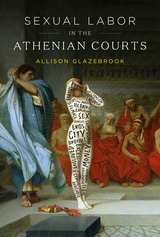
Oratory is a valuable source for reconstructing the practices, legalities, and attitudes surrounding sexual labor in classical Athens. It provides evidence of male and female sex laborers, sex slaves, brothels, sex traffickers, the cost of sex, contracts for sexual labor, and manumission practices for sex slaves. Yet the witty, wealthy, and independent hetaira, well-known from other genres, does not feature. Its detailed narratives and character portrayals provide a unique discourse on sexual labor and reveal the complex relationship between such labor and Athenian society.
Through a holistic examination of five key speeches, Sexual Labor in the Athenian Courts considers how portrayals of sex laborers intersected with gender, the body, sexuality, the family, urban spaces, and the polis in the context of the Athenian courts. Drawing on gender theory and exploring questions of space, place, and mobility, Allison Glazebrook shows how sex laborers represented a diverse set of anxieties concerning social legitimacy and how the public discourse about them is in fact a discourse on Athenian society, values, and institutions.

This book explores the relationship between women and property in the Greek lands and their broader social position in the century that culminated with the establishment of the national Greek state (1750–1850). Evdoxios Doxiadis focuses on the status and rights of Greek women in the later Ottoman period, the decade-long Greek War of Independence, and the first decades of the Greek state, seeking to reveal the impact that the pursuit of modernization by the early Greek governments had on women. Through the systematic examination of numerous legal documents in notarial archives from four distinct regions (Naxos, Mykonos, Athens, and Leonidio), the position of women in Greek societies of the period is illuminated in all its complexity and regional diversity. Special emphasis is placed on women’s ability in some areas to defend their property rights and be active economic agents.
Although the Greek revolutionaries and the Greek state did not curtail the rights of women with respect to property, the very institutions that were fundamental in the creation of the Greek state transformed the established relationship between women and property. Doxiadis shows that modernization proved to be an oppressive force for Greek women—though in a much more clandestine fashion than perhaps expected in other European states.
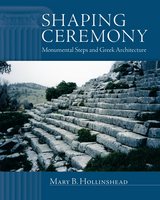
The heart of the study is a close reading of thirty-eight sites with monumental steps from the sixth through second centuries B.C. Organized by century, the book tracks the development of built pathways and grandstands for crowds of worshippers as evidence of the Greeks' increasing awareness of the power of architecture to shape behavior and concentrate social energy. With photographs and illustrations of plans, Shaping Ceremony offers a clear account of how Greeks' adaptation of terrain for human use promoted social cohesion and integrated architectural compositions.
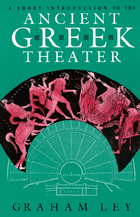
Reexamining the surviving plays of the tragic writers Aeschylus, Sophocles, and Euripides and of the comedian Aristophanes, Graham Ley discusses the actor's technique, the power and range of the chorus, the use of theatrical space, and parody in the plays. A series of diagrams relates the theater to the city and political life of ancient Athens, and photographic illustrations of scenes from Greek vases document the visualization of theatrical performance.
An ideal companion to The Complete Greek Tragedies (University of Chicago Press), Ley's work is a valuable user's guide to the critical assessment of modern translations and adaptations of tragedy and comedy. It is designed for all students of Greek drama with an interest in performance, and for theatrical practitioners who require a concise but informative introduction to one of the great periods of world drama.
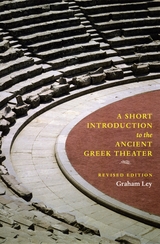
Reexamining the surviving plays of Aeschylus, Sophocles, Euripides, and Aristophanes, Graham Ley here discusses acting technique, scenery, the power and range of the chorus, the use of theatrical space, and parody in their plays. In addition to photos of scenes from Greek vases that document theatrical performance, this new edition includes notes on ancient mime and puppetry and how to read Greek playtexts as scripts, as well as an updated bibliography. An ideal companion to The Complete Greek Tragedies, also published by the University of Chicago Press, Ley’s work is a concise and informative introduction to one of the great periods of world drama.
"Anyone faced with Athenian tragedy or comedy for the first time, in or out of the classroom, would do well to start with A Short Introduction to Ancient Greek Theater."—Didaskalia
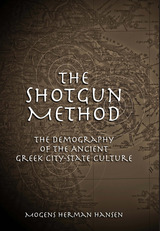
Although the polis, or city-state, defined the essence of classical Greek civilization, evidence of its most basic characteristics is woefully inadequate. Now a leading scholar in the evaluation of data from the ancient world sheds new light on how those units were constituted.
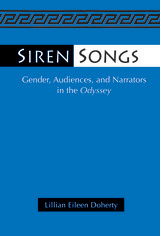
Siren Songs synthesizes audience-oriented and narratological approaches, and examines the relationships among three kinds of audiences: internal, implied, and actual. The author prefaces her own reading of the Odyssey with an analysis of the issues posed by the earlier feminist readings on which she builds. Should the Odyssey be read as a "closed" text, that is, as one whose meaning is highly determined, or as an "open" text whose contradictions and ambiguities undercut its overt meanings?
Siren Songs presents a feminist critique of the Odyssey in an accessible manner aimed at a more general audience. All Greek is translated, and critical terminology is clearly defined.
Lillian Eileen Doherty is Associate Professor of Classics, University of Maryland, College Park.

A poetic guide to the heavens, the Phaenomena of Aratus—dating from around 270 BCE—was widely known across the ancient world, second only in fame to the works of Homer. Beginning with an invocation to Zeus, the poem describes the constellations of the northern and southern skies, the celestial sphere, and weather signs. Aratus’s vivid work offered a complete handbook of astronomy, constellations, and weather, and this treatise on the night sky was later translated or adapted by luminaries including Cicero, Virgil, and Ovid. The Phaenomena remained popular throughout the Renaissance and had more than sixty printed editions by the early seventeenth century, but its notoriety has faded in the modern world.
With this edition, renowned translator and amateur astronomer Stanley Lombardo renders Aratus’s poem in reader-friendly vernacular English verse. Complete with endnotes, an accessible introduction, and astronomically accurate illustrations, The Sky Is Our Song brings this master poet’s celebration of the sky to a twenty-first-century audience, inviting new readers to follow Aratus on a visual journey through star signs, moon phases, weather phenomena, and all wonders of the heavens.
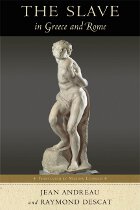
Jean Andreau and Raymond Descat break new ground in this comparative history of slavery in Greece and Rome. Focusing on slaves’ economic role in society, their crucial contributions to Greek and Roman culture, and their daily and family lives, the authors examine the different ways in which slavery evolved in the two cultures. Accessible to both scholars and students, this book provides a detailed overview of the ancient evidence and the modern debates surrounding the vast and largely invisible populations of enslaved peoples in the classical world.
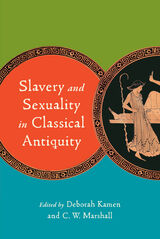
Slavery and Sexuality in Classical Antiquity reveals the often hidden and contradictory attitudes concerning the sexual identities and expression of enslaved people. These individuals were typically objectified by both social convention and legal description but were also recognized as human subjects, with subjectivity and sexual desires of their own. The contributors provoke valuable and fascinating questions that not only recognize the trauma and struggles of enslaved people but also point to the apparent inconsistencies in the mindsets of the enslavers. The resulting volume expands our understanding of both sexuality and slavery in ancient Greece and Rome, as separate subjects and as they impacted each other.
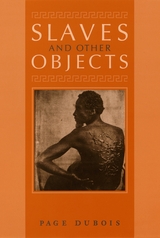
DuBois begins her study by exploring the material culture of slavery, including how most museum exhibits erase the presence of slaves in the classical world. Shifting her focus to literature, she considers the place of slaves in Plato's Meno, Aristotle's Politics, Aesop's Fables, Aristophanes' Wasps, and Euripides' Orestes. She contends throughout that portraying the difference between slave and free as natural was pivotal to Greek concepts of selfhood and political freedom, and that scholars who idealize such concepts too often fail to recognize the role that slavery played in their articulation.
Opening new lines of inquiry into ancient culture, Slaves and Other Objects will enlighten classicists and historians alike.
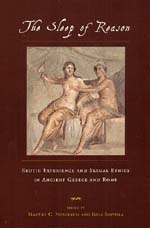
The Sleep of Reason brings together an international group of philosophers, philologists, literary critics, and historians to consider two questions normally kept separate: how is erotic experience understood in classical texts of various kinds, and what ethical judgments and philosophical arguments are made about sex? From same-sex desire to conjugal love, and from Plato and Aristotle to the Roman Stoic Musonius Rufus, the contributors demonstrate the complexity and diversity of classical sexuality. They also show that the ethics of eros, in both Greece and Rome, shared a number of commonalities: a focus not only on self-mastery, but also on reciprocity; a concern among men not just for penetration and display of their power, but also for being gentle and kind, and for being loved for themselves; and that women and even younger men felt not only gratitude and acceptance, but also joy and sexual desire.
Contributors:
* Eva Cantarella
* Kenneth Dover
* Chris Faraone
* Simon Goldhill
* Stephen Halliwell
* David M. Halperin
* J. Samuel Houser
* Maarit Kaimio
* David Konstan
* David Leitao
* Martha C. Nussbaum
* A. W. Price
* Juha Sihvola
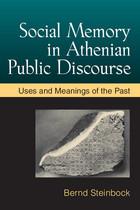
Integrating literary, epigraphic, and archaeological evidence with recent scholarship on memory, identity, rhetoric, and international relations, Social Memory in Athenian Public Discourse: Uses and Meanings of the Past enhances our understanding of both the function of memory in Athenian public discourse and the history of Athenian-Theban relations. It should be of interest not only to students of Greek history and oratory but to everybody interested in memory studies, Athenian democracy, and political decision making.
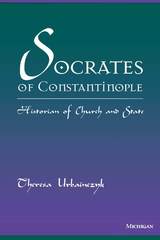
The church history written by Socrates of Constantinople is one of the most important sources, Eastern or Western, pagan or Christian, for these complex centuries. Socrates of Constantinople: Historian of Church and State is the first detailed study of Socrates' history--it describes the historical situation in which he wrote his work, and it pulls together all the personal information available about the author. The volume then examines Socrates' own work: how it was composed, which sources were used and how, and it looks at the relationship between Socrates' work and other church histories. It goes on to consider Socrates' attitudes towards bishops, emperors, and their enemies.
Socrates is sometimes dismissed by modern scholars for being a poor ecclesiastical historiographer. However, Theresa Urbainczyk carefully demonstrates Socrates' theory of causation, which affected the way he wrote his history, and she argues that he introduced secular material deliberately. In his view arguments and division in the church caused trouble in the state. In other words, when church leaders quibbled over theology, they endangered the state. It was therefore their duty, for the sake of church and state, to unite--under the emperor. This study not only calls on scholars to reexamine Socrates of Constantinople but makes the wider arguments that the ancients were far less concerned with genre than are modern scholars, and that ecclesiastical history is a continuation of, not a deviation from, political history.
Socrates of Constantinople: Historian of Church and State will be of interest to students and scholars interested in late Roman and early Christian history, theology, and historiography. Anyone studying late antiquity will find an examination of Socrates' attitudes essential.
Theresa Urbainczyk is College Lecturer in the Department of Classics, University College, Dublin.

Hailed by Horace and Quintilian as the greatest of Greek lyric poets, Pindar has always enjoyed a privileged position in the so-called classical tradition of the West. Given the intense difficulty of the poetry, however, Pindaric interpretation has forever grappled with the perplexing dilemma that one of the most influential poets of antiquity should prove to be so dark.
In discussing both poets and scholars from a broad historical span, with special emphasis on the German legacy of genius, Soliciting Darkness investigates how Pindar’s obscurity has been perceived and confronted, extorted and exploited. As such, this study addresses a variety of pressing issues, including the recovery and appropriation of classical texts, problems of translation, representations of lyric authenticity, and the possibility or impossibility of a continuous literary tradition. The poetics of obscurity that emerges here suggests that taking Pindar to be an incomprehensible poet may not simply be the result of an insufficient or false reading, but rather may serve as a wholly adequate judgment.
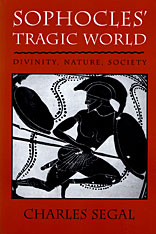
Much has been written about the heroic figures of Sophocles’ powerful dramas. Now Charles Segal focuses our attention not on individual heroes and heroines, but on the world that inspired and motivated their actions—a universe of family, city, nature, and the supernatural. He shows how these ancient masterpieces offer insight into the abiding question of tragedy: how one can make sense of a world that involves so much apparently meaningless violence and suffering.
In a series of engagingly written interconnected essays, Segal studies five of Sophocles’ seven extant plays: Ajax, Oedipus Tyrannus, Philoctetes, Antigone, and the often neglected Trachinian Women. He examines the language and structure of the plays from several interpretive perspectives, drawing both on traditional philological analysis and on current literary and cultural theory. He pays particular attention to the mythic and ritual backgrounds of the plays, noting Sophocles’ reinterpretation of the ancient myths. His delineation of the heroes and their tragedies encompasses their relations with city and family, conflicts between men and women, defiance of social institutions, and the interaction of society, nature, and the gods. Segal’s analysis sheds new light on Sophocles’ plays—among the most widely read works of classical literature—and on their implications for Greek views on the gods, moral life, and sexuality.
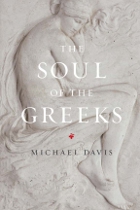
The understanding of the soul in the West has been profoundly shaped by Christianity, and its influence can be seen in certain assumptions often made about the soul: that, for example, if it does exist, it is separable from the body, free, immortal, and potentially pure. The ancient Greeks, however, conceived of the soul quite differently. In this ambitious new work, Michael Davis analyzes works by Homer, Herodotus, Euripides, Plato, and Aristotle to reveal how the ancient Greeks portrayed and understood what he calls “the fully human soul.”
Beginning with Homer’s Iliad, Davis lays out the tension within the soul of Achilles between immortality and life. He then turns to Aristotle’s De Anima and Nicomachean Ethics to explore the consequences of the problem of Achilles across the whole range of the soul’s activity. Moving to Herodotus and Euripides, Davis considers the former’s portrayal of the two extremes of culture—one rooted in stability and tradition, the other in freedom and motion—and explores how they mark the limits of character. Davis then shows how Helen and Iphigeneia among the Taurians serve to provide dramatic examples of Herodotus’s extreme cultures and their consequences for the soul. The book returns to philosophy in the final part, plumbing several Platonic dialogues—the Republic, Cleitophon, Hipparchus, Phaedrus, Euthyphro, and Symposium—to understand the soul’s imperfection in relation to law, justice, tyranny, eros, the gods, and philosophy itself. Davis concludes with Plato’s presentation of the soul of Socrates as self-aware and nontragic, even if it is necessarily alienated and divided against itself.
The Soul of the Greeks thus begins with the imperfect soul as it is manifested in Achilles’ heroic, but tragic, longing and concludes with its nontragic and fuller philosophic expression in the soul of Socrates. But, far from being a historical survey, it is instead a brilliant meditation on what lies at the heart of being human.

Covering the general fields of mathematics, astronomy, mathematical geography, physics, chemistry and chemical technology, geology and meteorology, biology, medicine, and physiological psychology, the present collection surveys the field of Greek scientific achievement over a thousand-year period.
Many Greek scientific treatises were written and read by cultivated people who did not regard themselves as specialists. These works should appeal today to those readers who wish to understand not only the foundations of modern science, but also a vital element of the humanistic tradition.
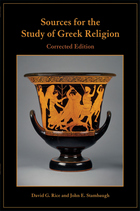
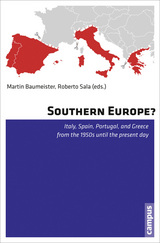
Now, old inequalities long believed to be things of the past have resurfaced, and a new debt crisis appears to be splitting the continent apart along historic lines. This book raises the important question of whether studying the geopolitics and social history of southern Europe might be a valuable analytical tool for understanding these contemporary financial catastrophes.

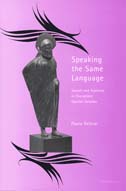
Speaking the Same Language seeks to recover the role played by the audiences within the History. By restoring the internal audiences to a more prominent place, Debnar emphasizes the perspective of the participants in the war and heightens the dramatic immediacy of the debates. She thoroughly analyzes twelve speeches delivered by or to the Spartans, demonstrating how the earlier speeches illustrate the role of discourse in the construction of Sparta's identity and the unification of her Dorian allies in the face of their primarily Ionian adversaries.
Combining close textual analysis with an examination of narrative and historical context, Debnar bridges the gap between literary and historical studies of Thucydides. Accessible to specialists and nonspecialists alike, her work will interest those working in the fields of Greek literature, ancient historiography, rhetoric, political science, and ethnic studies.
Paula Debnar is Associate Professor of Classics, Mount Holyoke College.
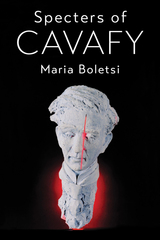
Specters of Cavafy broaches these questions by proposing spectral poetics as a novel approach to Cavafy’s work. Drawing from theorizations of specters and haunting, it develops spectrality as a lens for revisiting Cavafy’s poetry and prose, fiction and nonfiction, as well as his poetry’s bearing on our present. By examining Cavafy’s spectral poetics, the book’s first part shows how conjurations work in his writings, and how the spectral permeates the entanglement of modernity and haunting, and of irony and affect. The second part traces the afterlives of specific poems in the Western imagination since the 1990s, in Egypt’s history of debt and colonization, and in Greece during the country’s recent debt crisis. Beyond its original contribution to Cavafy studies, the book proposes tools and modes of reading that are broadly applicable in literary and cultural studies.

An adversarial advocate.
Aeschines, orator and statesman of Athens, 390 or 389–314 BC, became active in politics about 350. In 348 he was a member of a mission sent to the Peloponnese to stir up feeling against the growing power of King Philip of Macedon; but in 347, when part of a peacemaking embassy to Philip, was won over to sympathy with the king, and became a supporter of the peace policy of the Athenian statesman Eubulus. On a second embassy in 346 to ratify a peace Aeschines’ delaying tactics caused the famous orator Demosthenes and Timarchus to accuse him of treason, a charge that he successfully rebutted in the strong extant speech Against Timarchus. In 344–343, when Demosthenes accused him again in a speech, Aeschines replied in the fine extant speech having the same title On the False Embassy and was again acquitted. In 336, when Ctesiphon proposed that Demosthenes should be awarded a crown of gold for state service, Aeschines accused him of proposing something that would violate existing laws. At the trial Aeschines’ extant speech Against Ctesiphon was answered by Demosthenes in his masterpiece On the Crown. Aeschines, discredited, left Athens and set up a school of rhetoric at Rhodes. He died in Samos.
As examples of Greek oratory the speeches of Aeschines rank next to those of Demosthenes, and are important documents for the study of Athenian diplomacy and inner politics.
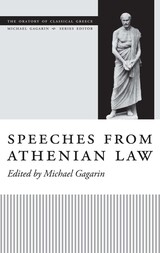
This is the sixteenth volume in the Oratory of Classical Greece. This series presents all of the surviving speeches from the late fifth and fourth centuries BC in new translations prepared by classical scholars who are at the forefront of the discipline. These translations are especially designed for the needs and interests of today's undergraduates, Greekless scholars in other disciplines, and the general public.
Classical oratory is an invaluable resource for the study of ancient Greek life and culture. The speeches offer evidence on Greek moral views, social and economic conditions, political and social ideology, law and legal procedure, and other aspects of Athenian culture that have recently been attracting particular interest: women and family life, slavery, and religion, to name just a few.
This volume assembles twenty-two speeches previously published in the Oratory series. The speeches are taken from a wide range of different kinds of cases—homicide, assault, commercial law, civic status, sexual offenses, and others—and include many of the best-known speeches in these areas. They are Antiphon, Speeches 1, 2, 5, and 6; Lysias 1, 3, 23, 24, and 32; Isocrates 17, 20; Isaeus 1, 7, 8; Hyperides 3; Demosthenes 27, 35, 54, 55, 57, and 59; and Aeschines 1. The volume is intended primarily for use in teaching courses in Greek law or related areas such as Greek history. It also provides the introductions and notes that originally accompanied the individual speeches, revised slightly to shift the focus onto law.
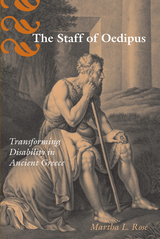
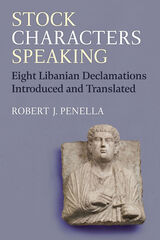
Declamations were composed and orally delivered in the Roman Empire by sophists, or teachers of rhetoric, of whom the Greek-speaking Libanius was one of the most distinguished. Stock Characters Speaking may be thought of as emerging from three developments of recent decades: an explosive interest in late antiquity, a newly sympathetic interest in rhetoric (including ancient declamation), and a desire to bring Libanius’s massive corpus into English and other modern languages.
In this book, author Robert J. Penella translates eight of Libanius’s declamations: 29, 30, 34, 35, 37, 45, 46, 47, and, in an appendix, the thirteenth-century Gregory of Cyprus’s response to Declamation 34. Each translation is accompanied by an introduction, in which Penella examines the themes, structure, and the stasis, or key issue, of the declamations. Figures who appear in the translated declamations include a parasite who has lost his patron, a man envious of his rich neighbor, a miser’s son, a poor man willing to die for his city, a rich war-hero accused of aiming at tyranny, and a convict asking for exile. Three of these declamations have appeared in German; otherwise, these translations are the first into a modern language.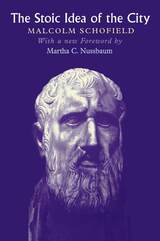
"The account emerges from a jigsaw-puzzle of items from a wide range of authorities, painstakingly pieced together and then annotated in a series of appendixes, the whole executed with fine scholarship, clarity, and good humor."—Times Literary Supplement
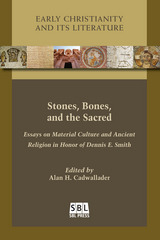
A crucial text for any university course on the interaction of archaeology and the Bible
The world of early Christians was not a world lived in texts; it was a world saturated with material reality and concerns: what, where and when to eat or drink; how to present oneself in the space of bodily life and that of death; how to move from one place to another; what impacted status or the adjudication of legal charges. All these and more controlled so much of life in the ancient world. The Christians were not immune from the impact of these realities. Sometimes they absorbed their surrounds; sometimes they quite explicitly rejected the material practices bearing in on them; frequently they modified the practice and the rationale to create a significant Christian alternative. The collection of essays in this volume come from a range of international scholars who, for all their different interests and critical commitments, are yet united in treasuring research into the Greek and Roman worlds in which Christians sought to make their way. They offer these essays in honor of one who has made a lifetime's work in mining ancient material culture to extract nuggets of insight into early Christian dining practices: Dennis E. Smith.
Features
- Rich examples of method in the utilization of ancient material culture for biblical interpretation.
- Thirteen essays with a response from Dennis E. Smith
- Maps, diagrams, and plates
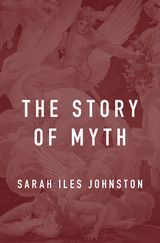
Greek myths have long been admired as beautiful, thrilling stories but dismissed as serious objects of belief. For centuries scholars have held that Greek epics, tragedies, and the other compelling works handed down to us obscure the “real” myths that supposedly inspired them. Instead of joining in this pursuit of hidden meanings, Sarah Iles Johnston argues that the very nature of myths as stories—as gripping tales starring vivid characters—enabled them to do their most important work: to create and sustain belief in the gods and heroes who formed the basis of Greek religion.
By drawing on work in narratology, sociology, and folklore studies, and by comparing Greek myths not only to the myths of other cultures but also to fairy tales, ghost stories, fantasy works, modern novels, and television series, The Story of Myth reveals the subtle yet powerful ways in which these ancient Greek tales forged enduring bonds between their characters and their audiences, created coherent story-worlds, and made it possible to believe in extraordinary gods. Johnston captures what makes Greek myths distinctively Greek, but simultaneously brings these myths into a broader conversation about how the stories told by all cultures affect our shared view of the cosmos and the creatures who inhabit it.
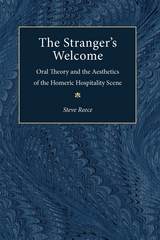
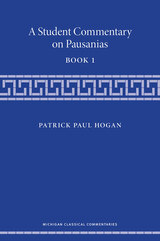
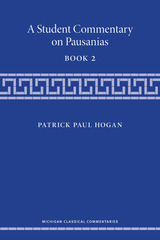
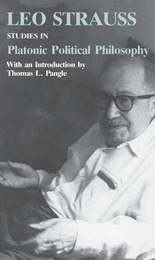
As his choice of title indicates, the heart of Strauss's work is Platonism—a Platonism that is altogether unorthodox and highly controversial. These essays consider, among others, Heidegger, Husserl, Nietzsche, Marx, Moses Maimonides, Machiavelli, and of course Plato himself to test the Platonic understanding of the conflict between philosophy and political society. Strauss argues that an awesome spritual impoverishment has engulfed modernity because of our dimming awareness of that conflict.
Thomas Pangle's Introduction places the work within the context of the entire Straussian corpus and focuses especially on Strauss's late Socratic writings as a key to his mature thought. For those already familiar with Strauss, Pangle's essay will provoke thought and debate; for beginning readers of Strauss, it provides a fine introduction. A complete bibliography of Strauss's writings if included.
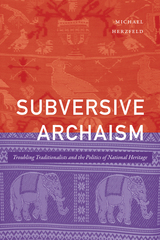
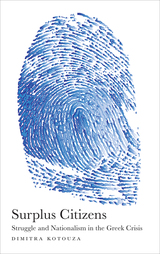
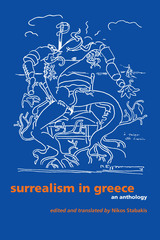
In the decades between the two World Wars, Greek writers and artists adopted surrealism both as an avant-garde means of overturning the stifling traditions of their classical heritage and also as a way of responding to the extremely unstable political situation in their country. Despite producing much first-rate work throughout the rest of the twentieth century, Greek surrealists have not been widely read outside of Greece. This volume seeks to remedy that omission by offering authoritative translations of the major works of the most important Greek surrealist writers.
Nikos Stabakis groups the Greek surrealists into three generations: the founders (such as Andreas Embirikos, Nikos Engonopoulos, and Nicolas Calas), the second generation, and the Pali Group, which formed around the magazine Pali. For each generation, he provides a very helpful introduction to the themes and concerns that animate their work, as well as concise biographies of each writer. Stabakis anthologizes translations of all the key surrealist works of each generation—poetry, prose, letters, and other documents—as well as a selection of rarer texts. His introduction to the volume places Greek surrealism within the context of the international movement, showing how Greek writers and artists used surrealism to express their own cultural and political realities.

Ann Flesor Beck's charming personal account recreates the atmosphere of her grandfather's candy kitchen with its odors of chocolate and popcorn and the comings-and-goings of family members. "The Store" represented success while anchoring the business district of Gus's chosen home. It also embodied the Midwest émigré experience of chain migration, immigrant networking, resistance and outright threats by local townspeople, food-related entrepreneurship, and tensions over whether later generations would take over the business.
An engaging blend of family memoir and Midwest history, Sweet Greeks tells how Greeks became candy makers to the nation, one shop at a time.
READERS
Browse our collection.
PUBLISHERS
See BiblioVault's publisher services.
STUDENT SERVICES
Files for college accessibility offices.
UChicago Accessibility Resources
home | accessibility | search | about | contact us
BiblioVault ® 2001 - 2024
The University of Chicago Press









